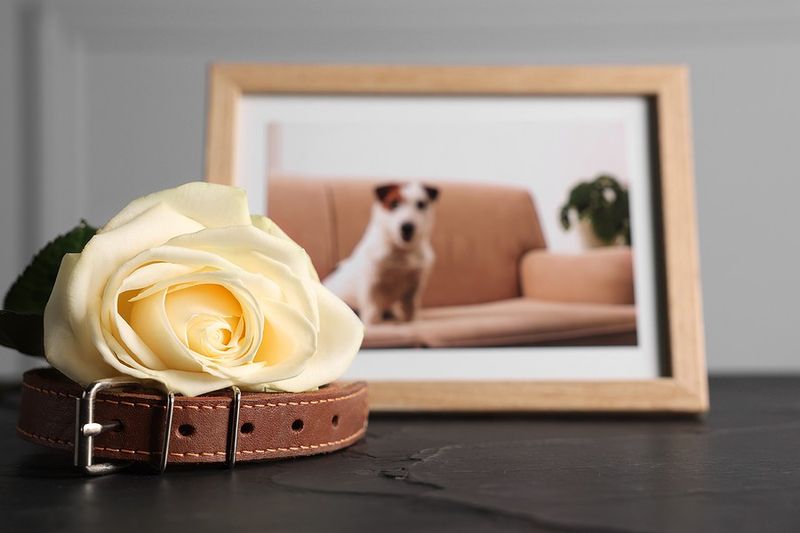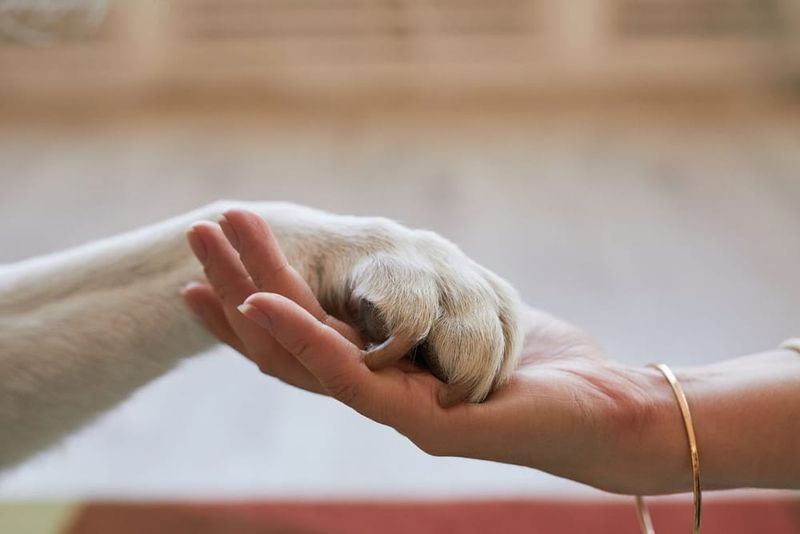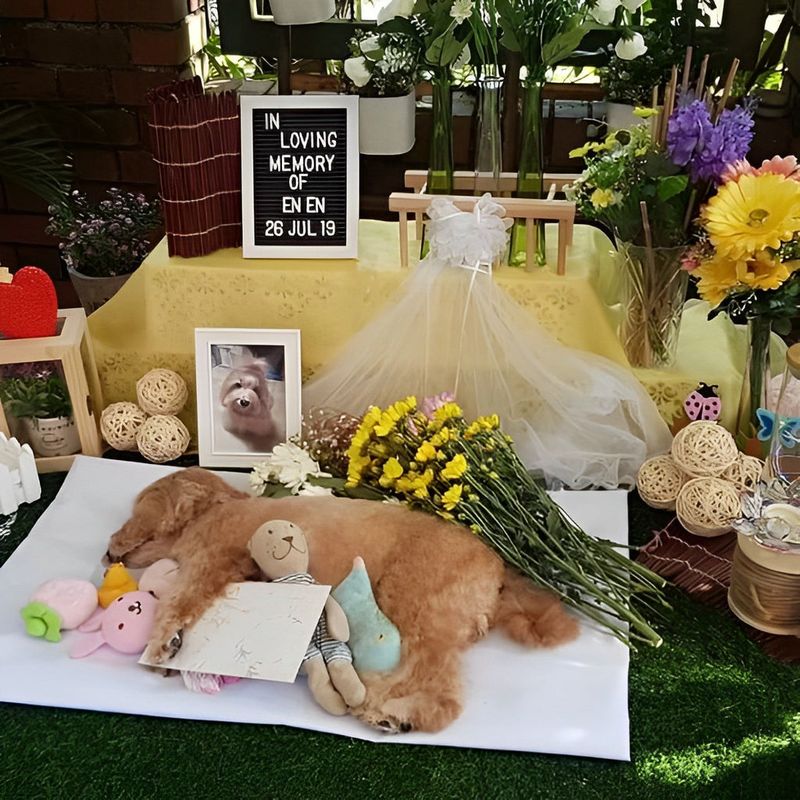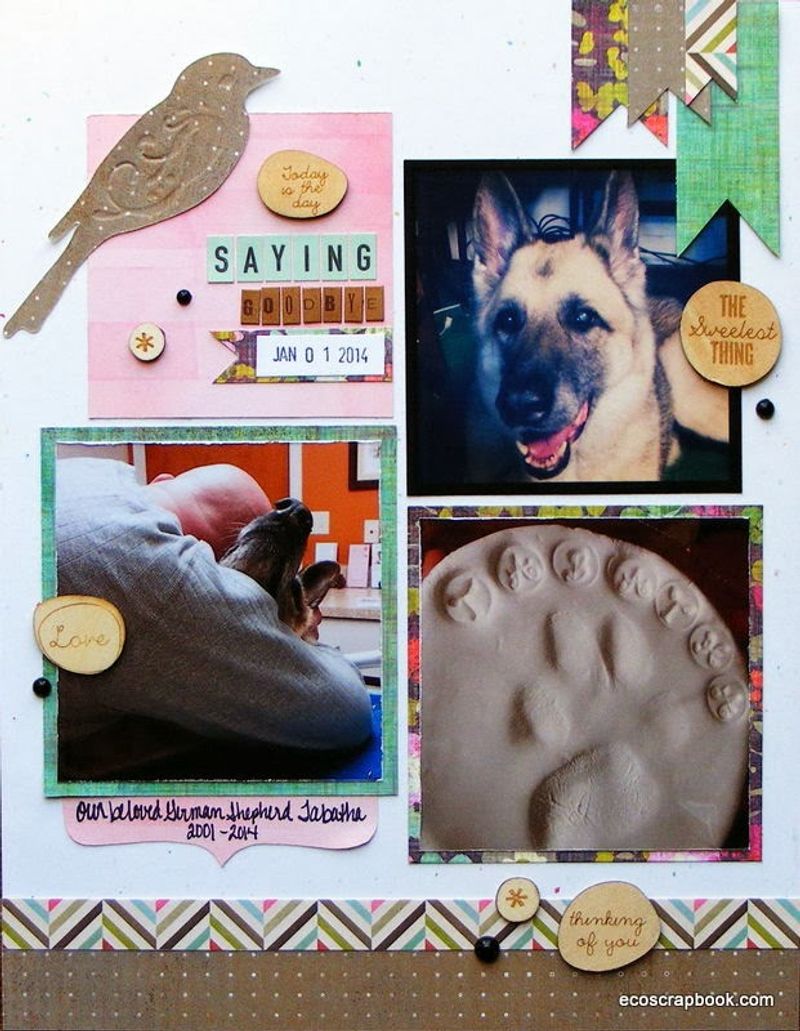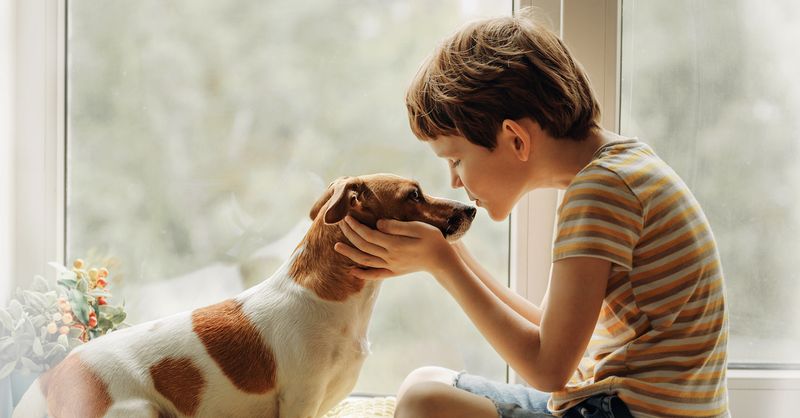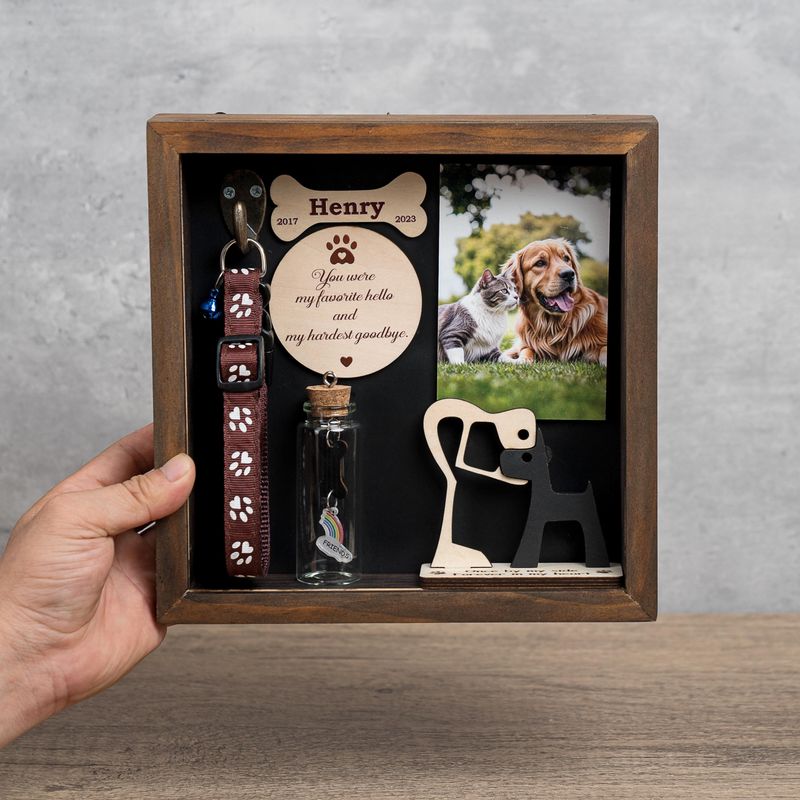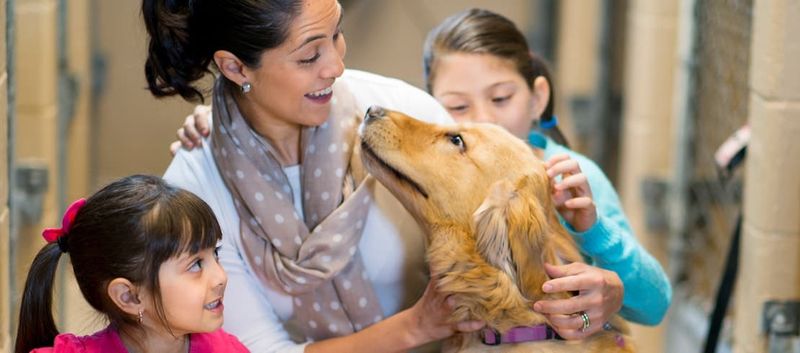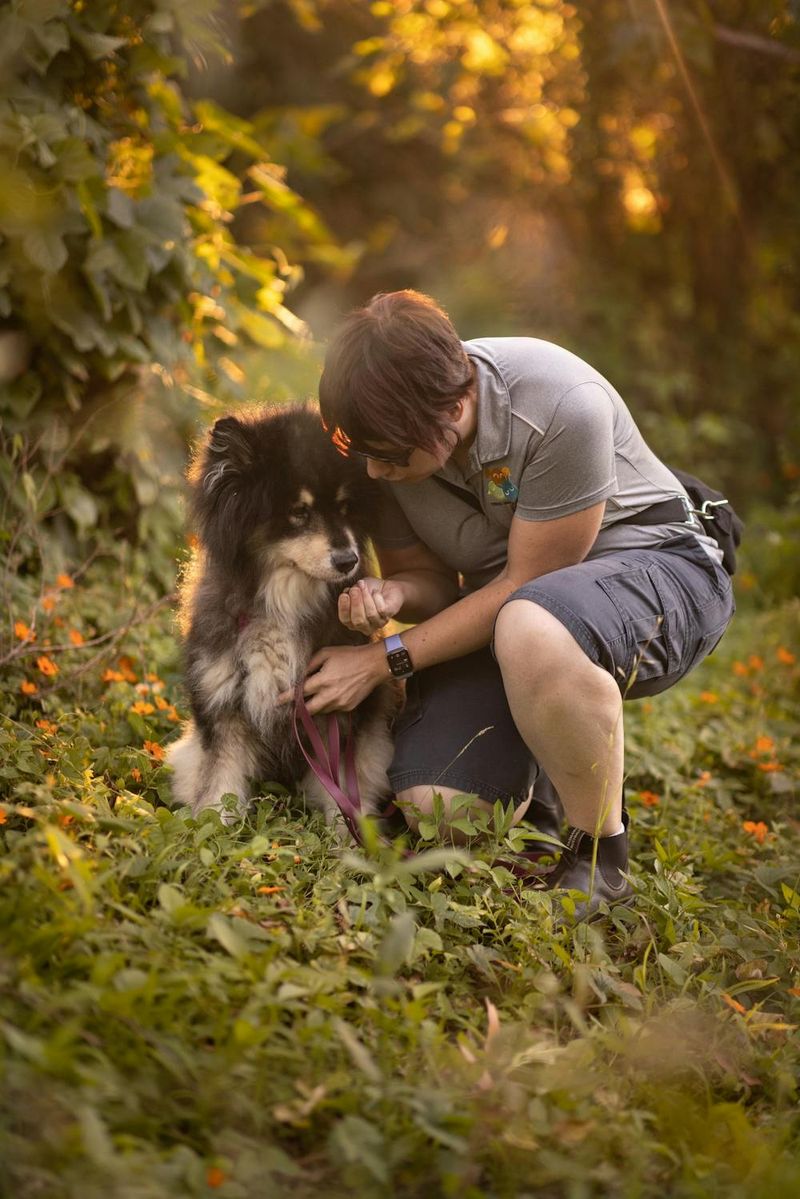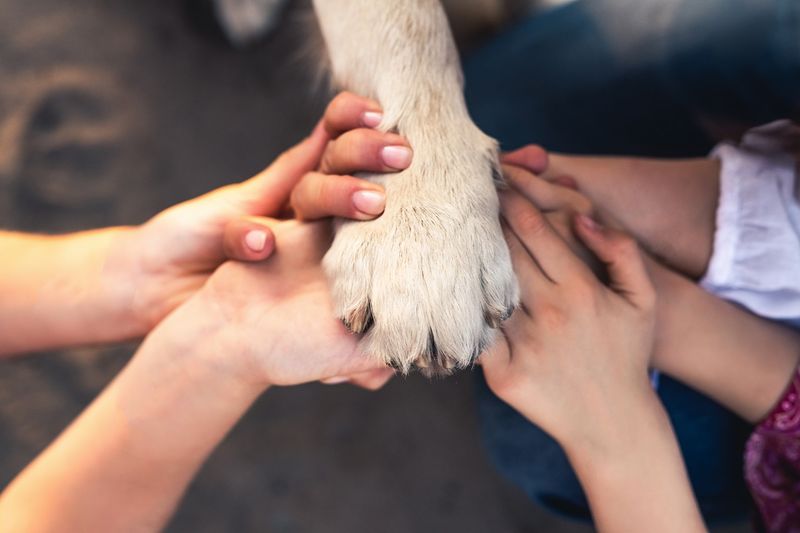Losing a beloved pet is never easy, and when your dog passes away at home, there are several important steps and considerations to keep in mind. From handling remains to dealing with grief, knowing what to do can make a difficult situation a little more bearable. Here are 14 essential things to know if this happens to you.
Decide on Handling the Remains
When faced with the loss of a pet at home, the first step is to determine how you will handle the remains. Some people may prefer to handle this task themselves, wrapping their pet in a blanket or towel.
Others may choose to contact a pet cremation service or their veterinarian for assistance. Each choice reflects personal values and circumstances. The key is to make a decision that feels right for you and your family.
Regardless of the method chosen, ensure it is done with care and respect. Consider discussing options with family members to find the best approach.
Notify Family Members
Breaking the news of a pet’s passing to family members is a delicate task. It’s often best to gather everyone together in a calm, supportive environment.
Start the conversation gently, allowing space for emotions and questions. Share memories and stories if it helps to ease the pain. Every family member will process the loss differently, so patience and empathy are crucial.
Remember, acknowledging the loss collectively can strengthen family bonds and provide comfort. Consider discussing how each person would like to say goodbye, creating a sense of communal support.
Consider Your Other Pets
Pets can grieve the loss of a companion too. If you have other animals at home, observe their behavior for any signs of distress.
They might sleep more or seem less interested in usual activities. Offer extra comfort and maintain routines to provide stability. Sometimes, introducing new toys or engaging in play can help lift their spirits.
Be patient, as each animal copes in its own way. Consult a vet if you notice persistent changes in behavior. Your other pets need reassurance during this time, just as much as you do.
Understand Legal Requirements
Laws regarding pet remains vary by location, so it’s important to familiarize yourself with local regulations. Some jurisdictions require specific disposal methods, such as burial depth or restrictions on pet cremation.
Contact local authorities or your veterinarian for guidance. They can provide clarity on what’s required in your area. Ignoring legal requirements can lead to fines or other legal issues.
Being informed ensures that you handle your pet’s remains lawfully and respectfully. It also provides peace of mind, knowing that you’re in compliance with local laws.
Arrange for a Memorial
Creating a memorial for your pet can be a healing part of the grieving process. Whether it’s a small garden stone, a framed photo, or a handwritten letter, memorials offer a way to celebrate your pet’s life.
Consider involving family members in the creation of the memorial. This could include planting a tree or designing a special spot in the garden.
Memorializing your pet helps to honor their memory and provides a tangible reminder of the joy they brought into your life. It can be a comforting ritual that aids in the healing journey.
Seek Emotional Support
Grieving the loss of a pet is as valid as mourning a human loved one. If you’re struggling, reaching out for support can be immensely helpful.
Consider joining a pet loss support group, either in person or online, where you can share your feelings with others who understand. Professional counseling is another option for those needing more guidance.
Talking to friends and family who have experienced similar losses can also provide comfort. Remember, it’s okay to grieve in your own way and time; there’s no right or wrong way to process this loss.
Plan a Farewell Ritual
A farewell ritual can be a meaningful way to say goodbye to your pet. This might include lighting a candle, sharing stories, or playing your pet’s favorite music.
Invite family members to participate, making it a communal experience. You might choose to hold the ritual in a place your pet loved, like the backyard or a sunny room.
Such ceremonies provide a sense of closure and an opportunity to honor your pet’s role in your life. It’s a moment to reflect on cherished memories and express gratitude for the joy they brought.
Document Memories
Documenting memories of your pet can be a comforting way to cherish their presence in your life. Create a scrapbook or photo album with favorite pictures and anecdotes.
Include notes about special moments or unique quirks that made your pet special. Engaging in this creative process can be therapeutic and a lovely keepsake.
Share stories with friends and family, keeping their memory alive. This tangible collection of memories serves as a beautiful reminder of the bond you shared, offering solace whenever you need to revisit happy times.
Inform Children Gently
Explaining the loss of a pet to children can be challenging. Choose a time when you can speak without interruptions, and use simple, age-appropriate language.
Encourage them to express their feelings, reassuring them that it’s okay to be sad or confused. Books about pet loss can be helpful tools in these discussions.
Allow children to participate in any farewells or memorials if they wish. This involvement helps them process grief and offers a sense of closure. Always be honest about the situation, providing comfort and understanding.
Preserve Keepsakes
Keeping mementos of your pet can provide comfort and a way to honor their memory. This might include their collar, a favorite toy, or a paw print.
Displaying these items in a special place in your home creates a tribute to your pet’s memory. It offers a physical reminder of the joy they brought.
Consider preserving these keepsakes in a shadow box or dedicated display area. These tokens of remembrance help keep your pet’s spirit alive in your home, offering solace when you need it most.
Consider Future Pets
Losing a pet may lead to considering a new companion. Take time to grieve before making any decisions, ensuring you’re ready for a new pet.
Reflect on what qualities you cherished in your pet and what you might seek in a future companion. Browsing adoption profiles can be a gentle step towards finding a new friend when you’re ready.
Remember, adopting a new pet is a personal choice and should be made when it feels right. It’s a fresh chapter that can bring joy and healing into your life.
Understand Grief is Individual
Grief is a deeply personal experience, and everyone processes it differently. Avoid comparing your journey to others; there’s no set timeline for healing.
Some days may be easier than others, and that’s normal. Allow yourself to feel the full range of emotions without judgment or pressure.
Writing in a journal can help articulate feelings and track progress. Embrace your unique path to healing, knowing that it’s perfectly okay to take it one day at a time. Healing from pet loss is a gradual process that unfolds in its own time.
Support from Veterinarians
Veterinarians often provide support and resources for grieving pet owners. Don’t hesitate to reach out for advice on handling your pet’s remains or coping emotionally.
They can connect you with support groups or recommend counseling services. Some clinics offer memorial services or keepsake options.
Veterinarians understand the human-animal bond and can guide you through this difficult time with expertise and compassion. Their support can be invaluable in navigating both practical and emotional challenges associated with losing a beloved pet.

